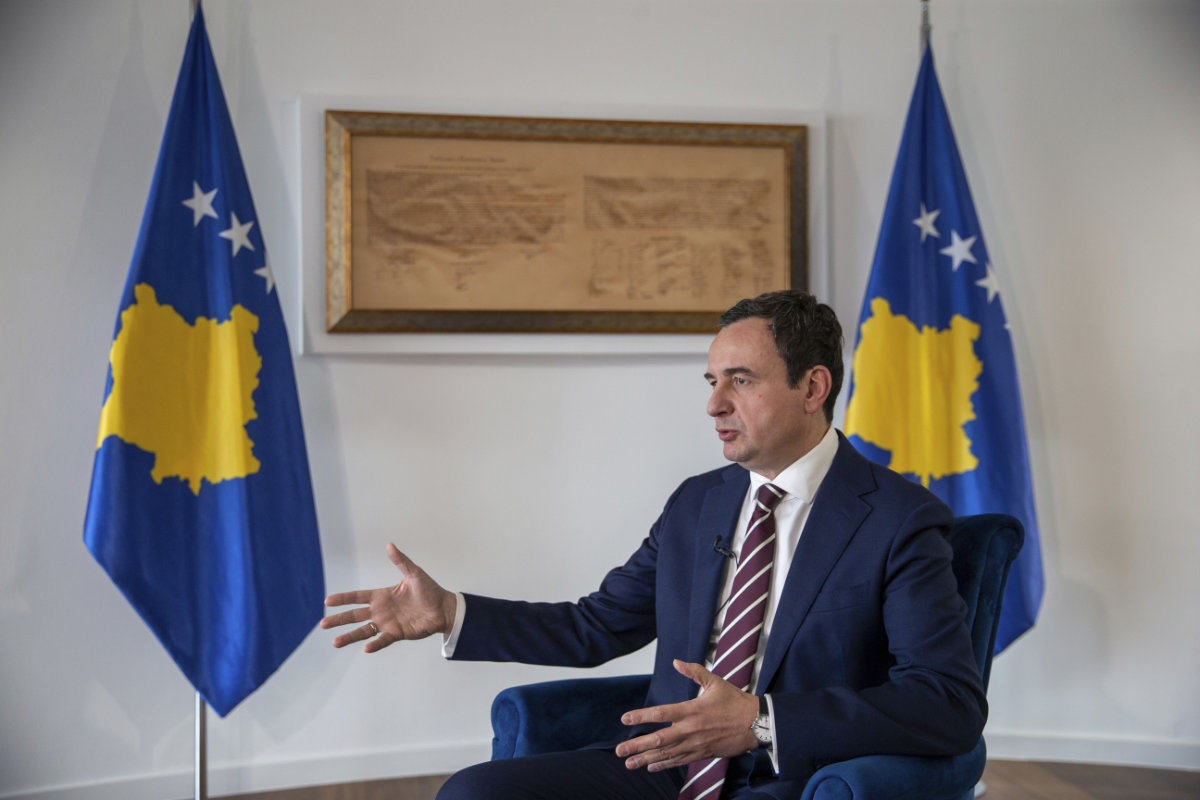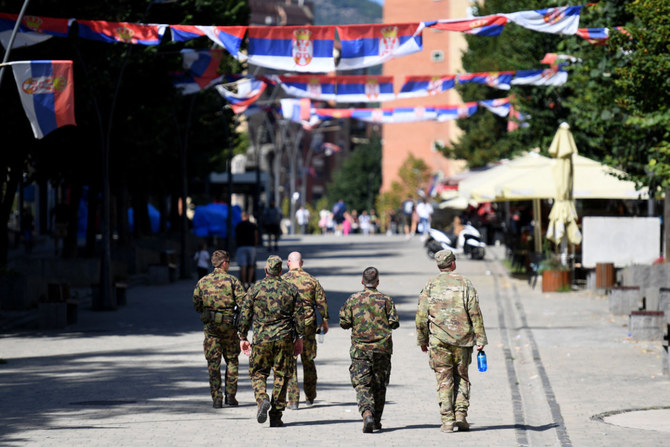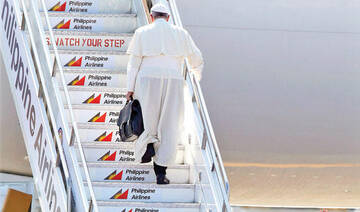PRISTINA, Kosovo: Kosovo’s prime minister on Friday welcomed a NATO decision to bolster its troops in the volatile Balkan region, saying last weekend’s shootout that left four people dead illustrates Serbia’s attempts to destabilize its former province with the help of ally Russia.
“These people want to turn back time,” Prime Minister Albin Kurti told The Associated Press. “They are in search of a time machine. They want to turn the clock back by 30 years. But that is not going to happen.”
Kosovo police on Friday raided several locations in a Serb-dominated area of the country’s north, where weekend violence left one Kosovo police officer and three Serb insurgents dead and further strained relations between Serbia and its former province.
Kosovo police said in a statement that they were conducting searches at five locations in three municipalities. The operation was connected to a Sunday shootout between Serb insurgents and police officers in the village of Banjska in northern Kosovo.
The confrontation was one of the worst since Kosovo declared independence from Serbia in 2008, with Belgrade refusing to recognize the split. NATO, which leads the KFOR peacekeeping force in Kosovo, announced Friday that it would beef up its presence.
“We need NATO because the border with Serbia is very long and the Serbian army has been recently strengthening its capacities and they have a lot of military equipment form both the Russian Federation and China,” Kurti said.

Pristina on Sept. 29, 2023. (AP Photo/Visar Kryeziu)
In a separate interview with the AP, Kosovo President Vlosa Osmani also hailed the NATO decision. Both Osmani and Kurti described the weekend violence as an “act of aggression” against Kosovo and demanded that Serbia be punished.
“We do hope that the international community will respond to this act of aggression in the proper way, first of all by condemning it, but then also, after they complete their internal procedures of confirmation of information, undertake clear measures against Serbia,” Osmani said.
Osmani referred to Serbia President Aleksandar Vučić as a “proxy” of Russia counterpart Vladimir Putin: “And it is very clear now to everyone, even to those that had any doubt, that he is playing out Russia’s plan in the Western Balkans.”
On Sunday, about 30 masked men opened fire on a police patrol near Banjska before breaking down the gates of a Serbian Orthodox monastery and barricading themselves inside with the priests and visiting pilgrims. The 12-hour shootout that followed left one police officer and three gunmen dead.
“These people who were there with masks most likely ... have contacts and communications with Russia, with the Kremlin,” Kurti said. “Wagner-like wannabes were trying to harm our police,” he said referring to the Moscow-backed paramilitary group that has been fighting in Ukraine.
“This is in violation also of the NATO presence, of NATO taking care of security and the safety of our country,” Kurti said. “The history of NATO and the history of Kosovo are intertwined.”
In Belgrade, Vučić said he had spoken on the phone with US Secretary of State Antony Blinken, and they “agreed that deescalation is needed” along with a greater role for KFOR.
NATO’s decision to send in more troops is “good news,” Vučić said. He reiterated Serbia’s allegations that at least one of the three Serbs killed in the violence was “liquidated” after surrendering and promised that Serbia will “prosecute the cold-blooded killers.” The insurgents, he said, are ordinary people who rebelled to “protect their homes.”
“I will not call the Serbs terrorists,” Vučić said. “I don’t care what anyone in the world thinks.”
The violence further raised tensions in the Balkan region at a time when European Union and US officials have been pushing for a deal that would normalize ties between Serbia and Kosovo. A NATO bombing campaign on Serb positions in Kosovo and Serbia led to the end of their 1998-99 war. The war left around 10,000 people dead, mostly Kosovo Albanians.
Serbian media reported that Kosovo police raided a hospital and a restaurant in the Serb-dominated part of the town of Mitrovica on Friday, as well as locations in other towns. The local Kossev news agency said officers confiscated several vehicles.
Kosovo accuses Serbia of direct involvement in the clashes in Banjska, which the government in Belgrade denies. Kosovo police said they had found huge quantities of weapons and equipment that suggested the insurgents had planned a wider operation. Some of the vehicles used had KFOR insignia.
It wasn’t immediately clear how many more peacekeeping troops NATO has agreed to send to Kosovo. Around 700 troops were deployed from Turkiye in June after dozens of KFOR personnel were hurt in riots in northern Kosovo. Some of them sustained life-altering injuries.
“We will always continue to make sure that our commander has the resources and flexibility necessary for KFOR to fulfill its mandate,” NATO Secretary-General Jens Stoltenberg said in a statement. “We stand ready to make further adjustments to KFOR’s posture as required.”
KFOR currently consists of around 4,500 troops from 27 NATO and partner countries. Its role is to help maintain a safe environment and ensure free movement for all people and communities in Kosovo. It operates under a UN mandate.
Part of the mission’s work has been deterring hostility or threats against Kosovo by Serb forces. KFOR has said that it closely monitored the weekend’s developments. It would only intervene if its help is requested by Kosovo authorities.
On Thursday, Kosovo’s interior minister, Xhelal Sveçla, alleged in an interview with the AP that Serbia operates training camps for insurgents and said that Kosovo authorities were also investigating Russia’s involvement in the violence.
There are fears in the West that Russia, acting through Serbia, may want to destabilize the Balkans and shift at least some of the attention from Moscow’s full-scale invasion of Ukraine. Russia has voiced support for Serbia over the clashes, blaming the West for allegedly failing to protect Kosovo Serbs.
The EU, with the backing of the US, has been brokering negotiations between the two sides. In February, Kurti and Vučić gave their approval to a 10-point EU plan for normalizing relations, but the two leaders have since distanced themselves from the agreement.


























